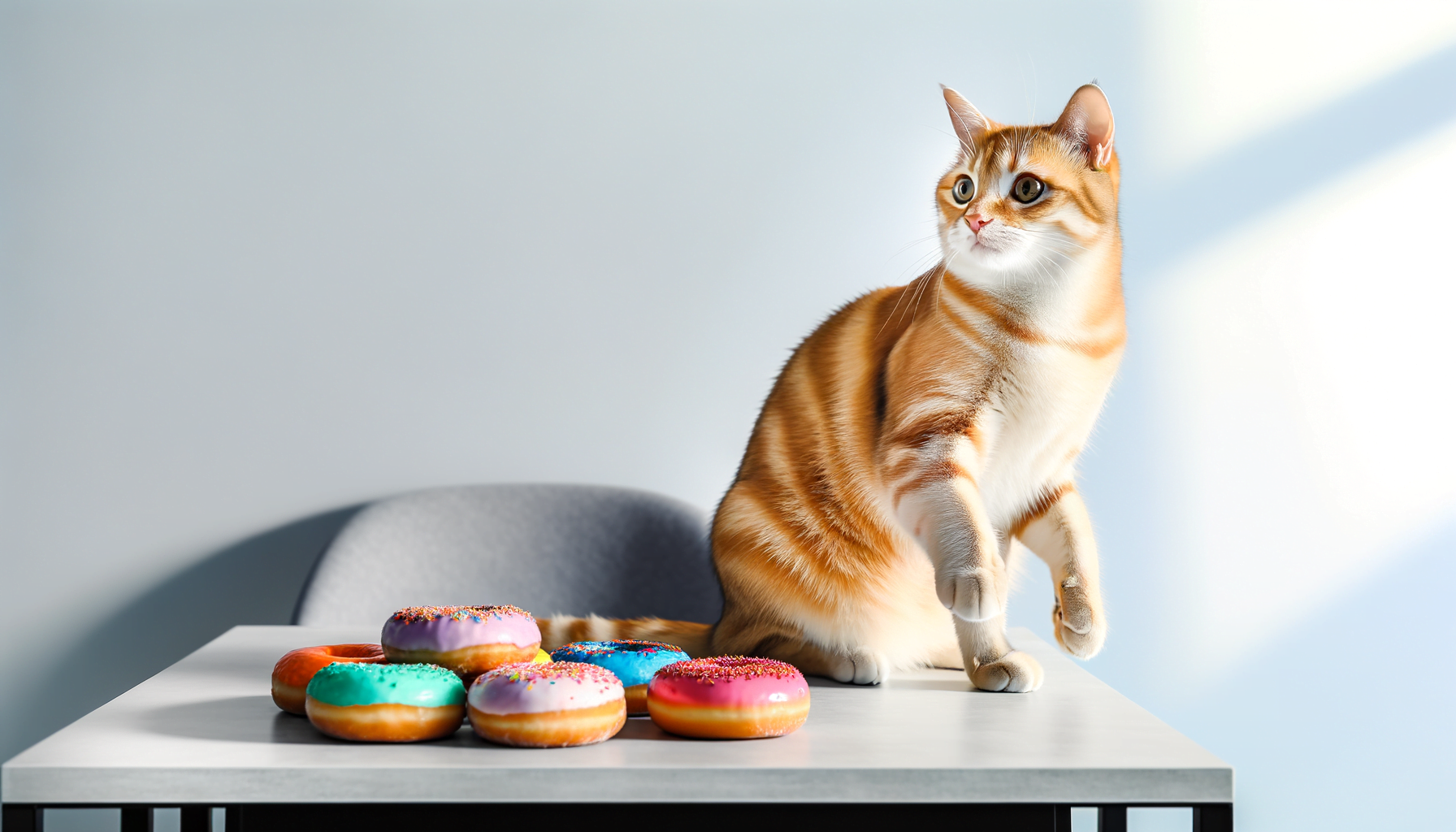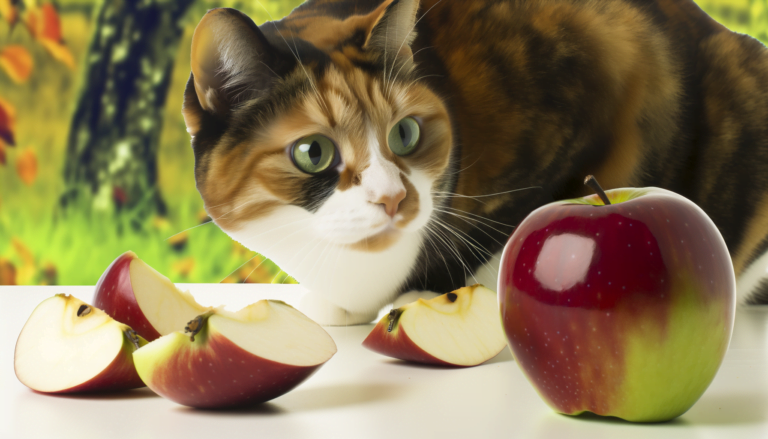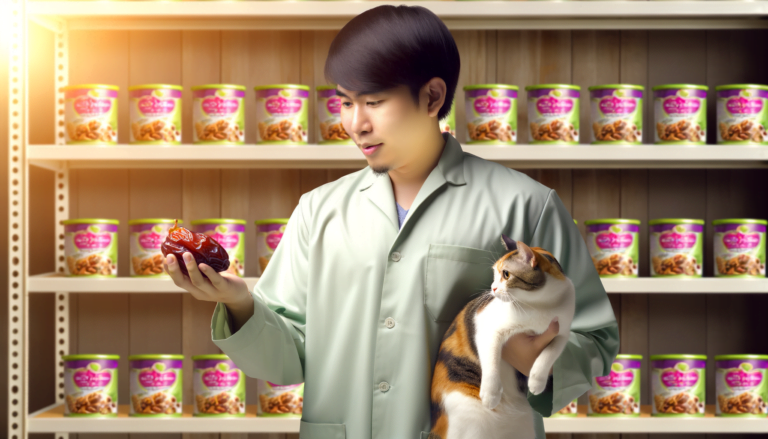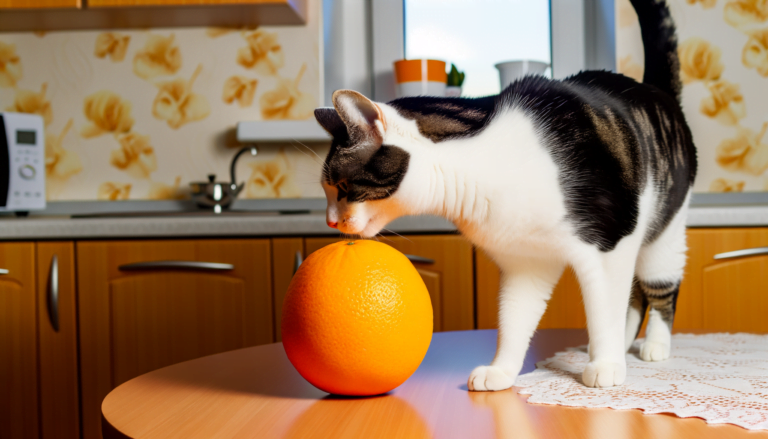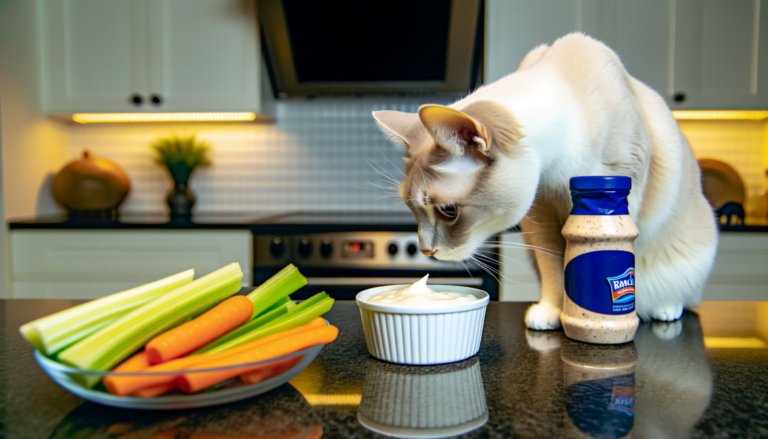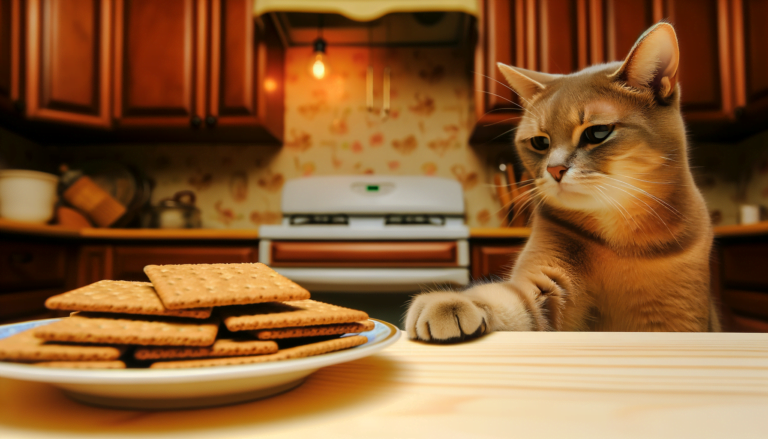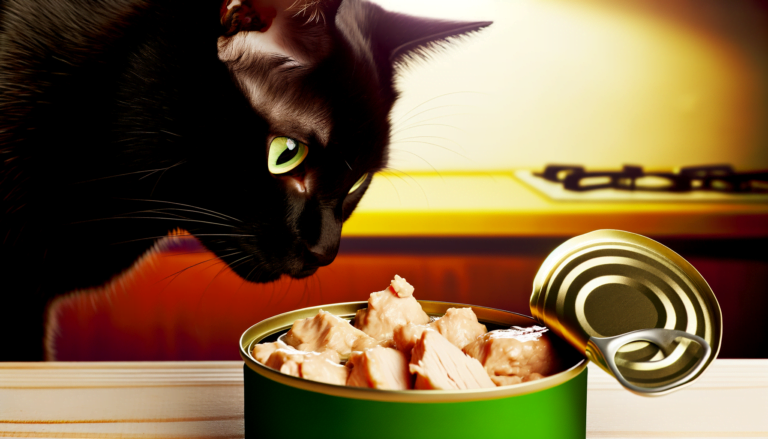Decoding Feline Diets: The Truth About Cats and Donuts
No, it isn’t advised for cats to consume donuts. The high sugar content in donuts, along with the potential for ingredients that may be toxic to cats, such as chocolate or certain artificial sweeteners, make them an unhealthy and potentially harmful treat. Additionally, the high-fat content of donuts can contribute to obesity and other health problems in cats. Thus, it’s best to stick to nutritionally balanced cat food and occasional cat-approved treats for your feline friend.
Potential Hazards of Cats Eating Donuts
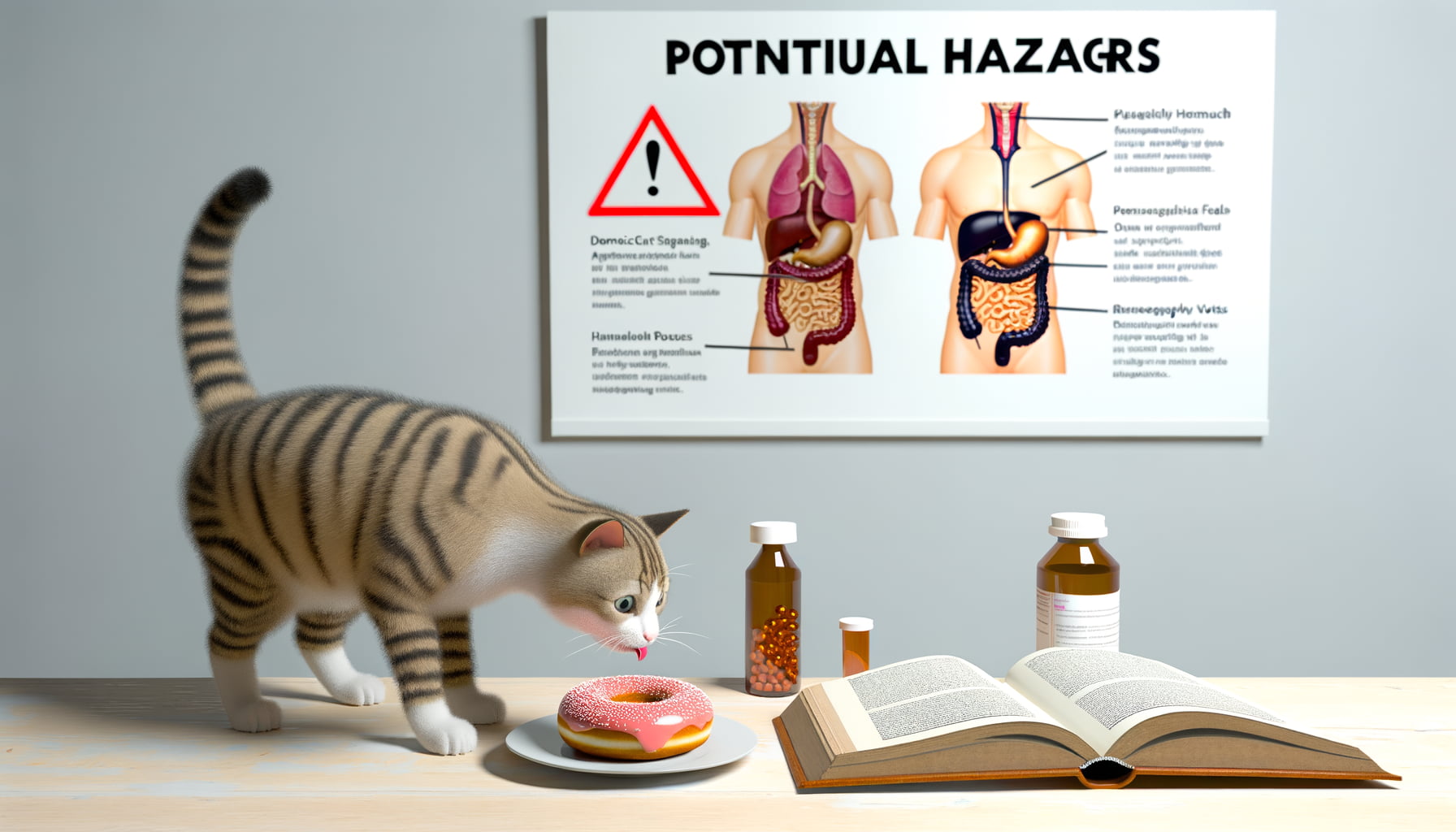
Cats eating donuts might appear charming, but it could lead to many potential risks. Donuts, although delightful for us humans, are filled with sugar and fats, neither of which form a healthy part of a cat’s nutritional intake. The high sugar levels present in donuts can easily contribute to unhealthy weight gain in cats and even lead to diabetes, a common problem in domestic cats.
Furthermore, the fats existing in donuts won’t do our feline friends any favors either. Cats require a diet rich in proteins, not unhealthy fats. Regular ingestion of such fatty foods could result in pancreatitis. This condition, characterized by inflammation of the pancreas, can have serious implications on a cat’s health and wellbeing.
Another aspect to consider is the potential presence of chocolate in donuts, which is toxic to cats. Even in small quantities, chocolate can lead to vomiting, diarrhea, rapid breathing, restlessness, and in severe cases, seizures in cats. Therefore, despite feline protests and displays of adoration for donuts, it’s best not to surrender to their desires. The allure of a sweet treat is not worth the potential hazards it poses to their health.
Understanding a Cat’s Dietary Needs
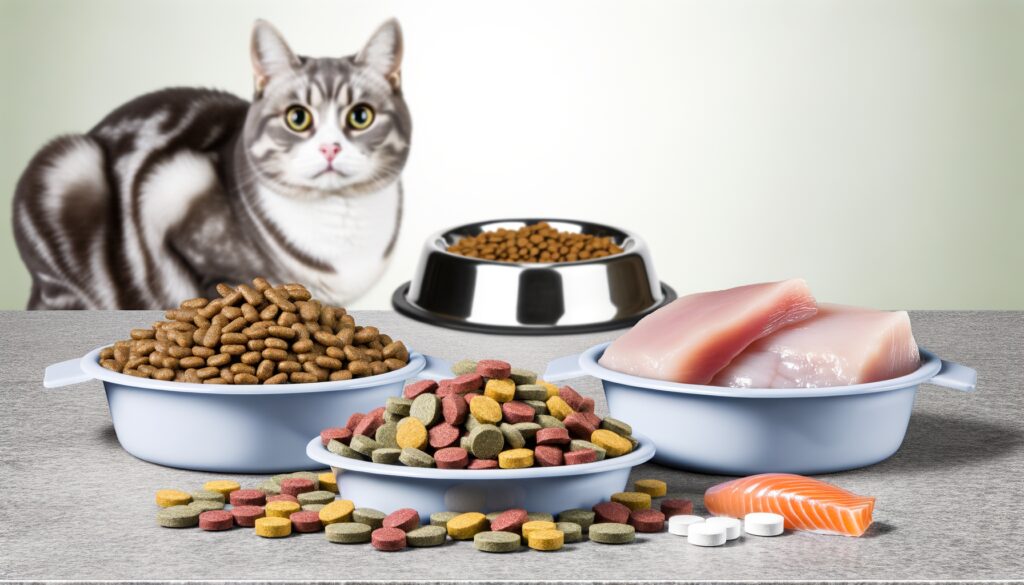
Cats have specific dietary needs that must be met for them to maintain good health and wellness. Unlike humans, cats are obligate carnivores, necessitating a diet mainly consisting of meat. Their bodies are designed to efficiently digest proteins, and they derive essential nutrients like taurine, arachidonic acid, and vitamin A directly from meat sources. While some cats may show interest in other types of food, like pastries or donuts, it’s important to understand that these are not nutritionally beneficial for them.
This doesn’t mean that cats can’t consume anything apart from meat. They can ingest small amounts of plant material, especially certain types of fruits and vegetables. But their bodies aren’t equipped to derive crucial nutrients from these foods as effectively as they can from meat sources. Specifically, donuts, while appetizing to some cats, offer little to no nutritional value and can potentially harm their health on account of their high sugar content and lack of essential nutrients.
Ensuring a well-rounded diet for your feline friend involves prioritizing high-quality, meat-based meals, and avoiding unsuitable foods that could negatively affect their health. Remember, the occasional treat outside of their usual diet is acceptable, but it should never replace high-quality cat food. Always prioritize your feline’s dietary needs before indulging their interest in foods like donuts.
Alternatives to Donuts for Cats
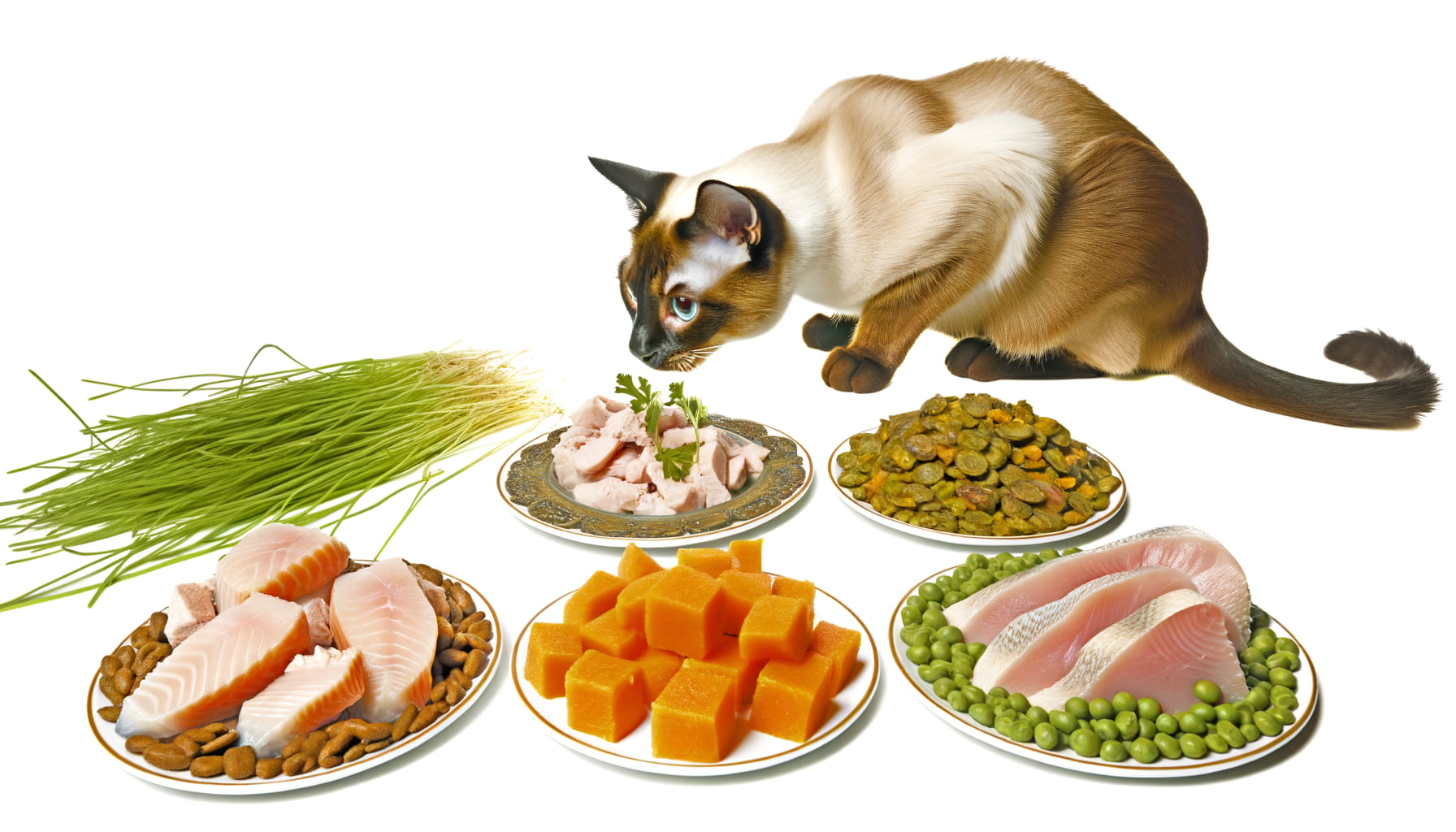
It’s essential to offer cats the appropriate substitutes for donuts that meet their specific dietary needs. Unlike human beings, cats require a diet rich in protein. They thrive on meals that contain significant quantities of taurine, an indispensable amino acid for cats. Therefore, commercial cat foods, particularly wet food options, make the optimal choice. They are specifically designed to provide a balanced diet and are high in both protein and moisture, resembling a cat’s natural diet.
For those who desire to treat their cats with homemade snacks, there are several alternatives. Baked fish and chicken are excellent choices, as they offer lean protein. However, it’s important to remember that these should be served in moderation and must never include garlic, onions, or other harmful ingredients. Freshly cooked fish or poultry, served unseasoned and in small portions, can serve as a tasty treat that is much healthier than a donut.
The popularity of cat-friendly recipes has grown recently, offering an array of DIY options for pet owners. From homemade catnip cookies to fishy biscuits, there are numerous healthy desserts ideas online. However, it’s imperative that any homemade recipes are vet-approved before you serve them to your cat. Regardless, it’s essential to ensure that treats form a minimal part of their diet, with the primary emphasis on balanced, nutritious meals.
The Composition of Donuts: A Nutritional Breakdown
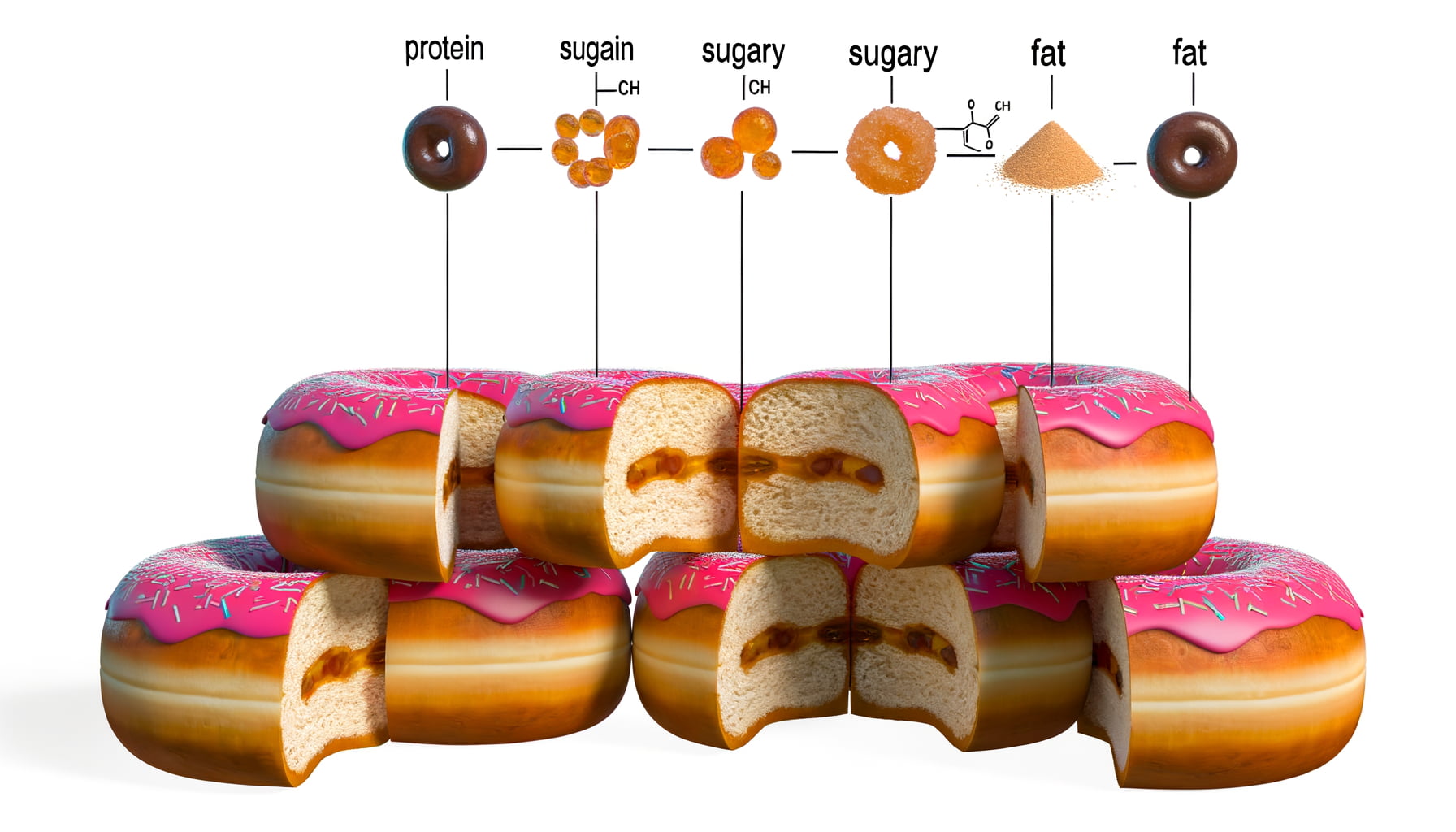
Let’s explore the nutritional structure of a typical donut. Donuts are primarily made of flour, sugar, eggs, and oil. As such, they are high in calories and carbohydrates, with relatively little protein or fiber. Their sugar content can also be extremely high, with a single donut potentially containing double-digit grams of sugar. Furthermore, while they contain trace amounts of some vitamins and minerals, these are typically insufficient to contribute to a balanced diet.
Cats, being obligate carnivores, have distinctly different nutritional needs than humans. In order to maintain their health, cats need a diet rich in protein and certain specific nutrients, like taurine and arginine, that are most readily available in meat. These carnivorous dietary needs mean they have little use for the carbohydrates and sugars that form the bulk of a donut’s nutrition, leaving felines at risk for unhealthy weight gain if their calorie intake isn’t carefully regulated.
When we weigh the attributes of a donut against the dietary requirements of a cat, there’s clearly a mismatch. A diet rich in donuts is lacking in the core nutrients a cat needs, and can lead to nutritional deficiency over time. Conversely, the high calorie and sugar content can contribute to obesity and related health issues, like diabetes. While a one-off treat may not cause significant harm, donuts are by no means a suitable regular food for cats
Conclusion
Decoding feline diets can be a complex task, especially when it comes to the truth about cats and donuts. As we have explored different collections of information, it’s clear that understanding the nutritional needs of our feline friends is essential for their health and well-being.
By delving into the facts and concrete evidence surrounding feline diets, we can make informed choices to provide our cats with a balanced and healthy diet. Let’s continue to prioritize the well-being of our furry companions by making mindful decisions when it comes to their nutrition.
